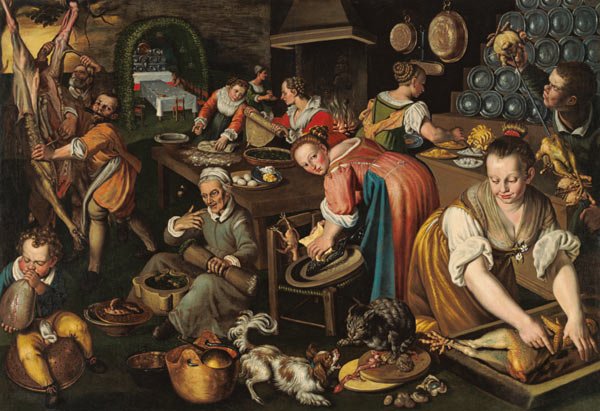
fOOD IN THE rEFORMATIONS
Forbidden fruit tempted Eve in the Garden of Eden to Original Sin, Jesus fasted for 40 days and 40 nights in the desert, and broke bread at the Last Supper saying ‘take; eat, this is my body’…. Questions about what, when, and how to eat food have long been intrinsic to the Christian faith.
My research explores the relationship between food and religion during the tumultuous Reformation period, with a particular focus on England and Italy, when these countries were defining themselves as Protestant and Catholic respectively.
I show how food helped forge confessional identities as Protestant and Catholics split not just in what they ate, but in how they thought eating functioned as a bodily and spiritual process that connected them to God.
-

My PhD 'Food and Religion in the English and Italian Reformations, c. 1560 - c. 1640' was awarded by Christ's College, the University of Cambridge in 2020. It is the first full-length work to explicitly examine how food played into the religious change of the Reformations. Using a huge range of sources from liturgies and sermons, material culture, medicinal tracts, and court records, I explore the use of food in church sacraments and sacramentals, changing fasts and feasts, and reformed dining practices. My research focused on Protestant England and Catholic Italy, and I spent several months researching in archives in Venice and Florence. I am currently working on turning this into a book entitled The Reformation of Food.
-

My article 'Reforming Food and Eating in Protestant England' is published in the Historical Journal. It illuminates a printed discourse in which Protestants laboured to define a new relationship to food and eating in light of the Reformation, from Elizabeth I's reign up until the Civil War. By paying attention to physiological theories, I argue that eating was a spiritually significant act to Protestants but in a way quite distinct to its use in Catholicism.
-

Based on my research on Inquisition records found in the Venetian State Archives, my article 'Food and Religious Identities in the Venetian Inquisition' (Renaissance Quarterly) illuminates the centrality of food to religious identity construction. Through trials relating to Protestantism, witchcraft, and Judaism, I show how different eating practices helped to forge the boundaries between distinct religious groups, but that - through food - these boundaries were more often traversed than we have previously imagined.
I presented my research on food and religion in the English Reformation on an episode of the podcast Talking Tudors. Listen to hear a summary of my findings!
